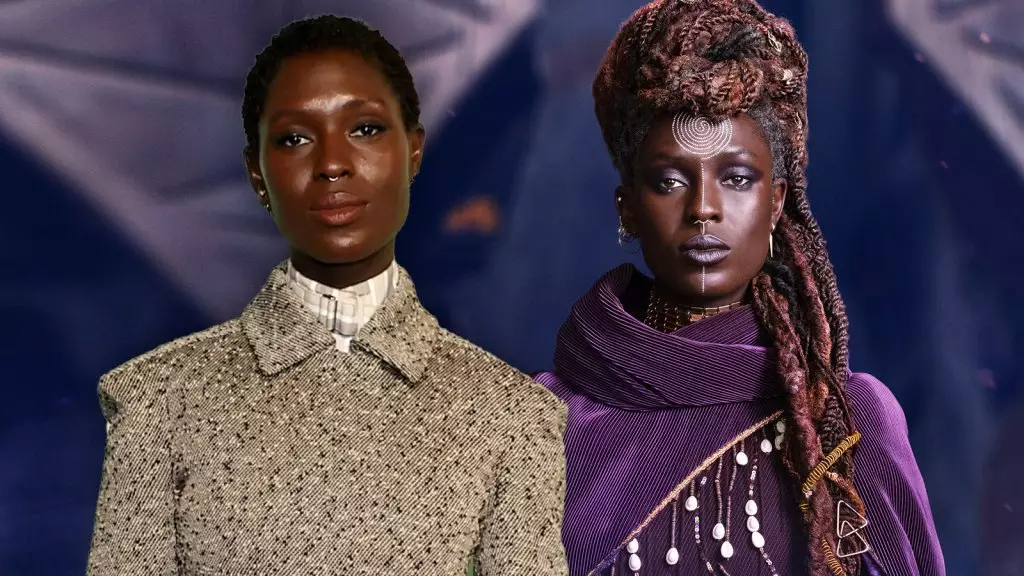In today’s digital age, the phenomenon of cyberbullying has emerged as a pressing concern, especially within the entertainment industry, where public figures often become targets of hate and discrimination. Recent remarks by Jodie Turner-Smith highlight a significant issue regarding corporate responsibility in the wake of such attacks, particularly as they relate to diversity and support in the creative environment.
Amandla Stenberg, celebrated for her role in Disney’s “The Acolyte,” has faced relentless cyberbullying that points to deeper, societal issues relating to race and fandom culture. The backlash did not merely arise from her portrayal of a character; instead, it was fueled by prejudiced ideologies rampant among a minority of vocal fans. Stenberg openly referred to the harmful language and vitriol as “hyper-conservative bigotry,” affirming that the negativity encountered was not merely an anomaly but reflective of broader systemic racism.
In an age where social media operates as a double-edged sword, amplifying both support and hatred, Stenberg’s experience raises crucial questions about mental health and the emotional toll faced by public figures. Despite anticipating backlash, the personal impact of such targeted hate can be overwhelming, affecting not just one’s mental well-being but fundamentally altering their relationship with their craft.
Turner-Smith, who starred alongside Stenberg, has emerged as a vocal advocate for corporate accountability. Her recent statements challenge Disney to take a stand against the injustices faced by its talent, articulating a need for the company to protect its actors actively. “It’s just not fair to not say anything,” she emphasized, urging for a proactive approach in defending those under attack.
The significance of Turner-Smith’s remarks lies not merely in their emotional weight but also in the larger implications for how corporations handle issues of racism and bullying. By failing to offer verbal support, studios might inadvertently condone the very behavior they should be denouncing. Turner-Smith’s call to action implies that a mere announcement of solidarity could resonate powerfully, affirming the values of inclusivity and respect that many fans hold dearly.
Delving into the economics behind such corporate decisions, Turner-Smith believes that a strong statement against hate could serve Disney’s financial interests. “You might find that it’s actually more lucrative for them,” she argued, alluding to the considerable purchasing power held by communities of color. This notion challenges the notion that wokeness or support for progressive values is financially detrimental. Instead, it frames social responsibility as an opportunity for growth, engagement, and brand loyalty in a demographic increasingly aware of social justice issues.
The current landscape suggests that audiences gravitate toward genuine engagement with diversity issues, compelling organizations to reassess their approaches. Companies that remain silent in the face of injustice risk alienating large segments of their consumer base, leading to potential financial backlash rather than gain.
In light of the adversity faced, Stenberg has chosen to channel her experiences into her creative work, including music expressing her feelings about racism and the appropriation of the term “woke.” Their commitment to speak truth to power not only provides a means of catharsis but also serves as a rallying cry for others who face similar challenges. Stenberg’s creative response transcends personal healing; it represents an act of defiance and a reclaiming of narrative, reminding both fans and industry giants of the responsibility that comes with influence.
This situation serves as a critical reminder that the conversations surrounding racism are not limited to the individual level but extend to institutional accountability. As the industry continues to evolve, there remains a significant need for solidarity and proactive measures from corporations. Supporting marginalized voices is not merely an ethical obligation; it symbolizes a necessary step towards creating an inclusive and respectful entertainment landscape for all.


Leave a Reply